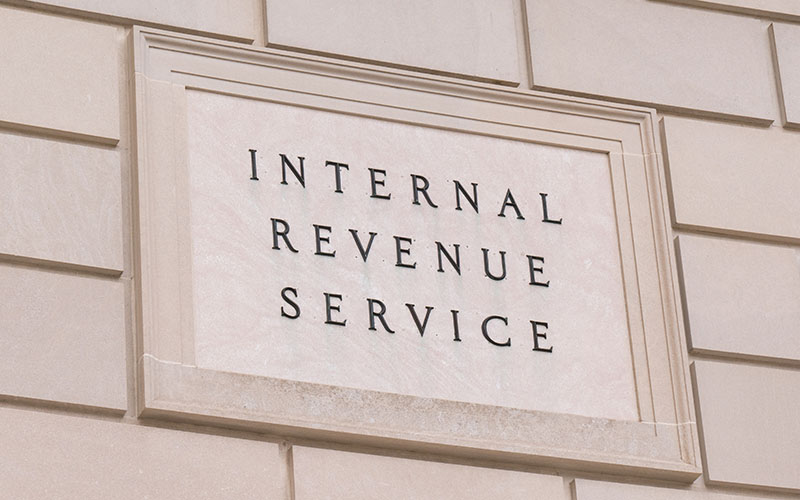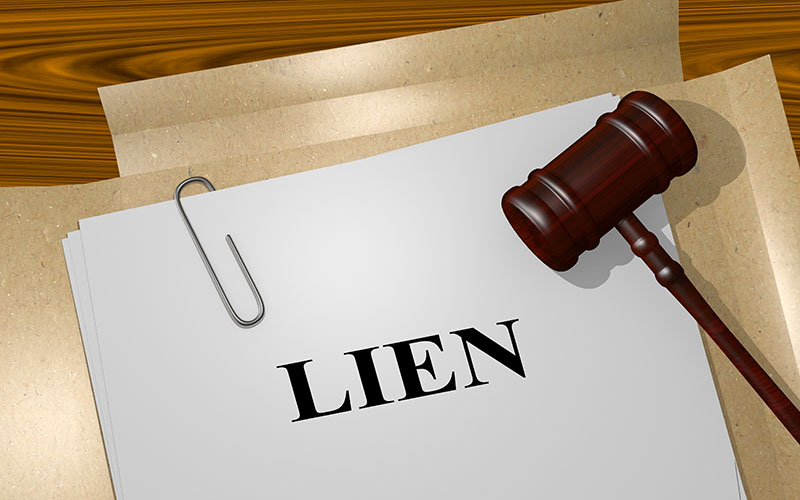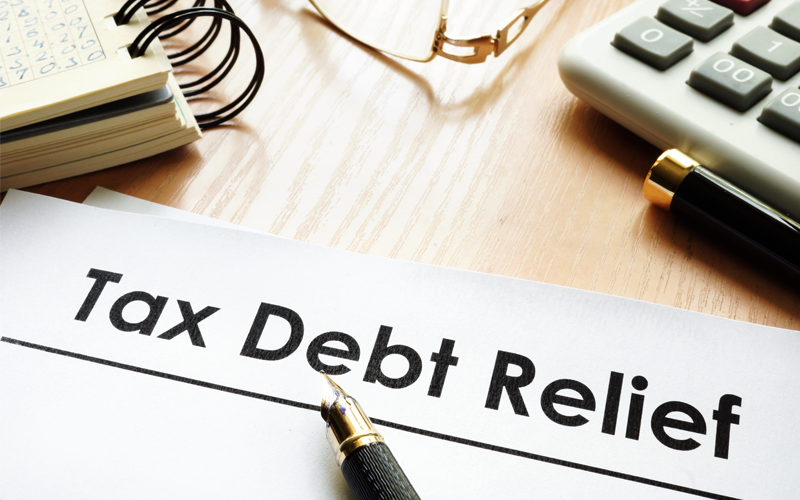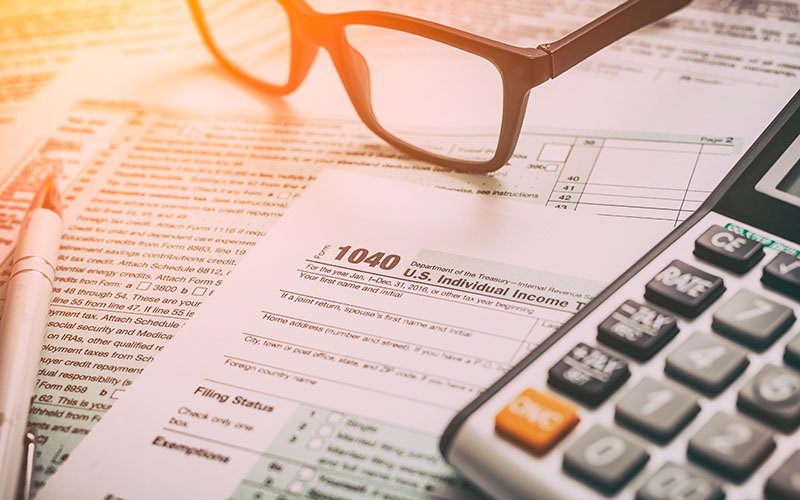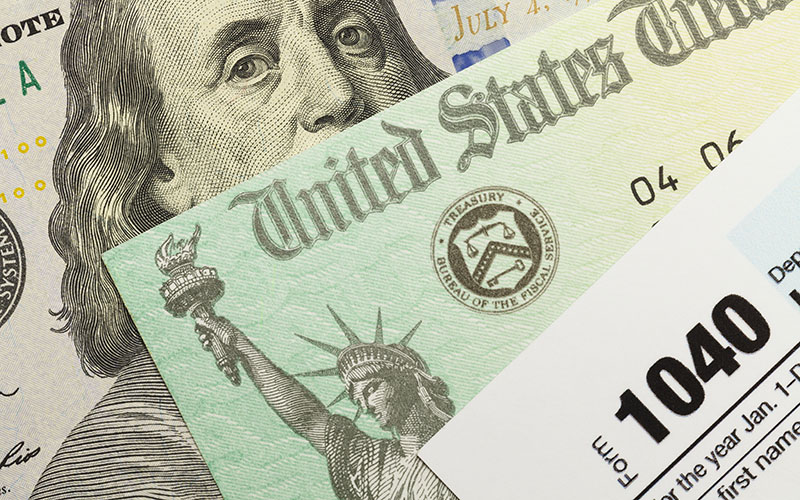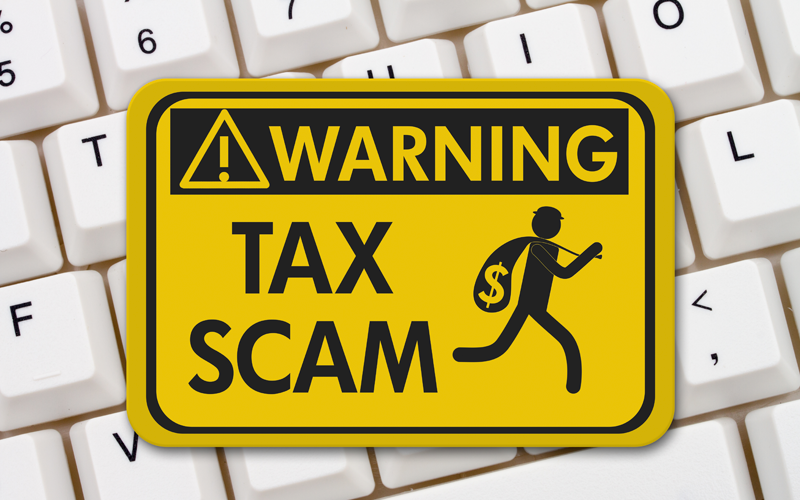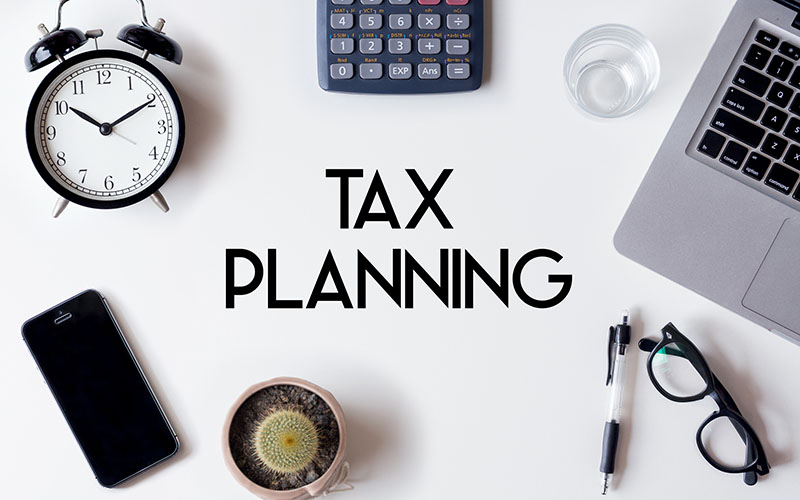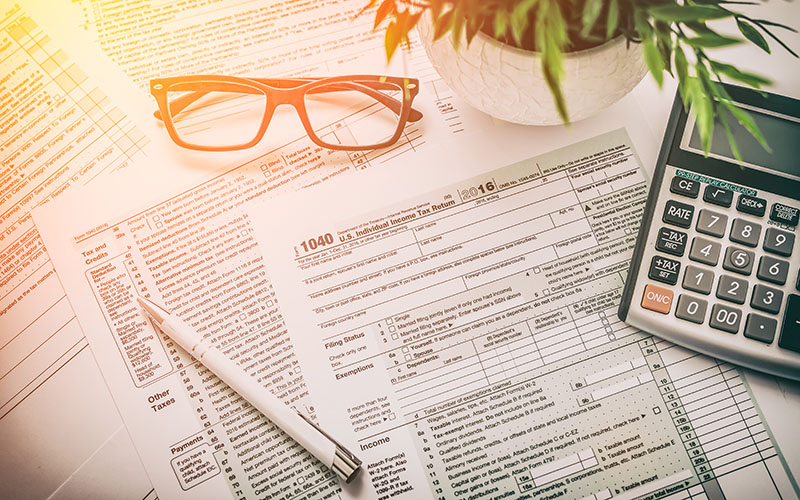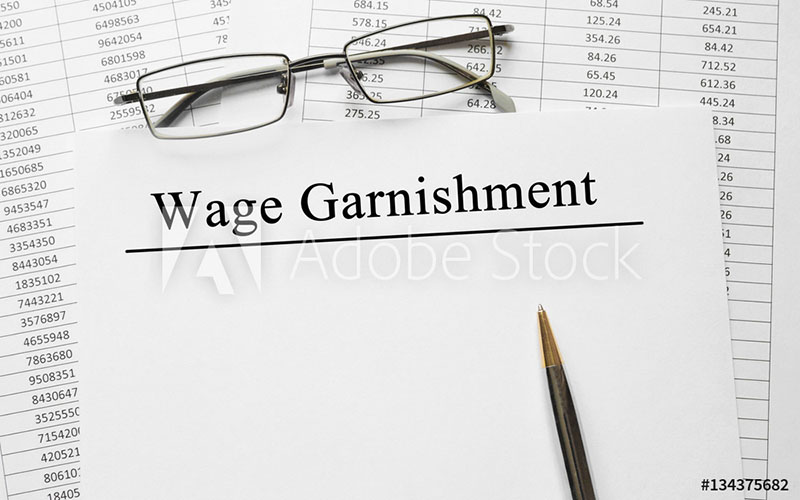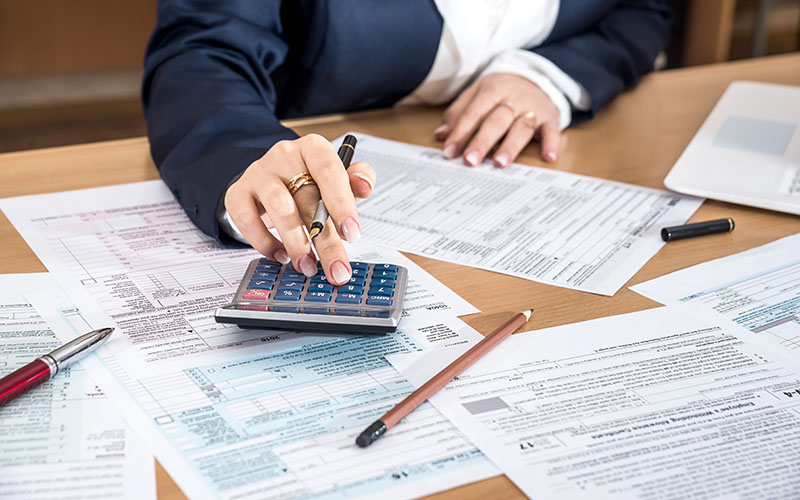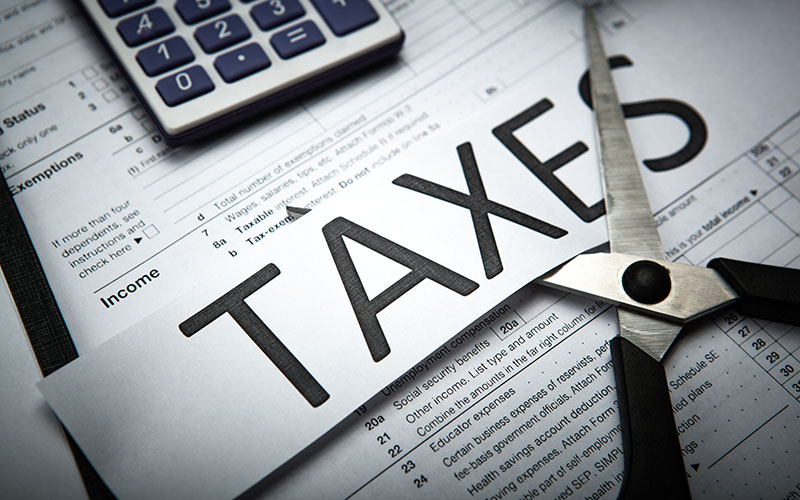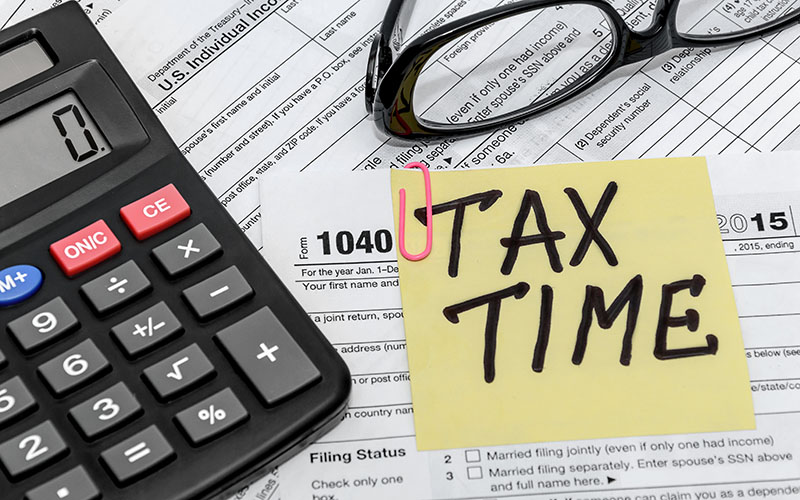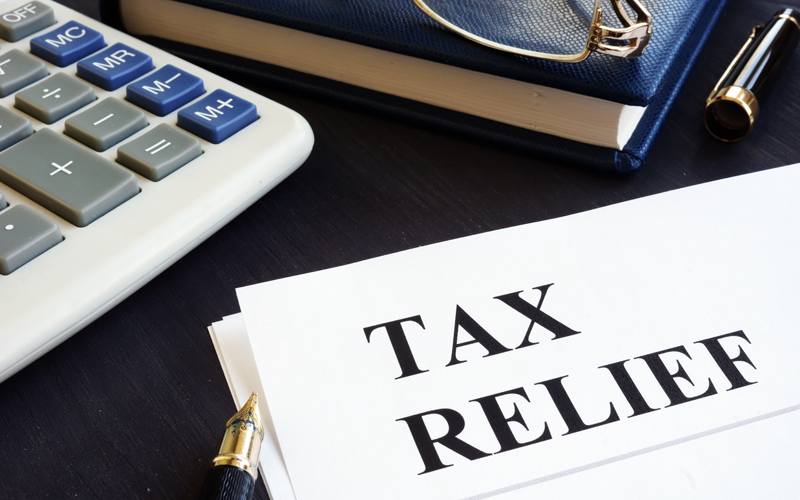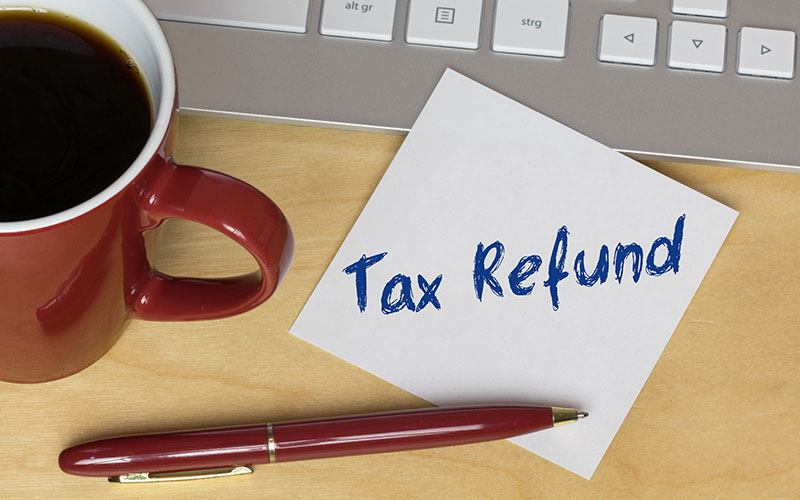What To Do If You Get A Tax Notice From The IRS
Key Takeaways
- IRS notices are official communications that address potential issues like unpaid taxes, filing errors, or identity verification
- Notices may come as a surprise, even if you filed correctly and on time
- Responding promptly and accurately is essential to avoid additional fees or penalties
- Working with a professional can minimize errors, fees, and penalties

Types of Notices & Dos and Don’ts for Taxpayers
Tax time can often be a time of anxiety, uncertainty, and stress for individuals and businesses alike.
If you have filed your taxes before, it’s likely that these feelings are all too familiar. This can even be the case if you file correctly and on time.
But what about when things don’t go as planned? Perhaps you missed a payment or made an error during filing. Perhaps you underreported your income or have a backlog of unpaid taxes.
These are all valid reasons for the IRS to mail you a tax notice.
What does your notice mean? Are you in trouble with the IRS? What do you do next?

Did You Get A Tax Notice From The IRS?
If you received a notice or letter from the Internal Revenue Service (IRS) in the mail, it’s incredibly important to address it as quickly and effectively as possible in order to avoid additional problems and fees.
Whether you were aware of your existing tax issues or not, receiving a tax notice from the IRS is rarely a pleasant surprise – especially if you don’t know what the notice means.
The IRS can send you a notice for any number of reasons. Your notice will always include detailed information about that the notice pertains to and how to proceed. Sometimes, you can handle the issue without even visiting or calling the IRS office.
However, this can still be confusing for many taxpayers.
Below, we break down what your notice means for you and what steps you should take to address it.
What Receiving a Tax Letter or Notice Means for You
Every taxpayer’s or tax debtor’s situation is unique, so it’s essential that you pay close attention to the details on your particular notice.
First, you should confirm that the notice is in fact from the Internal Revenue Service. If it is, it will include detailed steps on how to respond.
If it not, check to see if it is from another agency, the Department of the Treasury Bureau of the Fiscal Service, or someplace else. If it is from any of the above, you will need to contact the corresponding entity directly – not the IRS.
“Why was I notified?”
Your first question is probably, “Why did I get a notice?”.
Your notice will always include an explanation as to why the IRS sent you a letter and what tax issue it pertains to. It will usually include a brief history of taxes unpaid or inaccuracies in your account.
If the notice is unclear about what the issue is and/or does not show proof of the offense, you should take special precautions to ensure that it is not a tax scam.
“Is this a scam?”
IRS imposter scams are fairly common, so you must be aware of the warning signs.
Some common signs that a notice may be a scam are:
- You get a call “from the IRS”. The IRS will always send you a notice through the mail before calling you about unpaid taxes. If you get a phone call from someone who claims to be from the IRS, this is likely a scam.
- The notice demands that you pay overdue taxes immediately. A true IRS notice will clearly outline the steps you need to take in order to pay – without urgency or threats.
- The notice mentions the threat of arrest. Again, a real IRS notice will inform you on how to address the issue before any mention of criminal charges or arrest.
- The notice asks you to verify personal information. The IRS already has your information and will never have you verify through a “click here” link or scammy website.
Still not sure whether the notice is a scam or not?
You can confirm the legitimacy of your notice by contacting the IRS directly, or by reporting suspected scam notices to the TIGTA at 1-800-366-4484.
“What do I do next?”
Once you are confident that the notice is legitimate, the next step is to address the tax issue with the IRS.
What you need to do will depend on the type of notice, your unique situation, and what the IRS has outlined in the notice. Your notice will typically outline these steps for you.
Below are the main types of IRS tax notices and how to handle them.
Types of IRS Tax Notices
The list of types of tax notices is quite exhaustive. Again, the notice you receive will specify what type of notice it is, what the tax issue is, and what steps to take next.
Below are the various categories that your notice could fall into:
You have a balance due.
- CP 14 - Balance Due, No Math Error
- CP 22A - Data Processing Adjustment Notice, Balance Due of $5 or More
- CP 22E - Examination Adjustment Notice, Balance Due
- CP 23 - Estimated Tax Payment Discrepancy, Balance Due
- CP 161 - Balance Due - Request for Payment or Notice of Unpaid Balance
- CP 501 - Balance Due Reminder Notice
- CP 504 - Urgent Notice - Balance Due
The IRS has a question about or has changed your tax return.
- CP 10 - Changes to Tax Return, Reduced Amount Applied Toward Payment of Your Estimated Tax
- CP 11 - Changes to Tax Return, Balance Due
- CP 11A - Changes to Tax Return and EIC, Balance Due
- CP 12 - Changes to Tax Return, Overpayment
- CP 13/CP 13A - Changes to Tax Return, No Refund, and No Balance Due
- CP 59 - First Notice Request for Your Tax Return
- CP 16 - Changes to Tax Return, Overpayment Applied to Balance Due
They need to verify your identity.
- CP 54B/CP 54E/CP 54G/CP 54Q - Problem with Name and Identifying Number
Notice of intent to levy.
- CP 90/CP 297 - Final Notice - Notice of Intent to Levy and Notice of Your Right to a Hearing
- CP 91/CP 298 - Final Notice Before Levy on Social Security Benefits
- CP 523 - Notice of Intent to Levy - You Defaulted on Your Installment Agreement
They need additional information.
- Letter 12C - Information Request
- CP 79 - Earned Income Credit Eligibility Requirement
- Letter 531- Notice of Deficiency
They need to notify you of delays in processing your return.
- CP 75/CP 75A/CP 75B - EIC Portion of the Refund Delayed
There was an overpayment on your account.
- CP 21B - Data Processing Adjustment Notice, Overpayment of $1 or More
- CP 49 - Overpaid Taxes Applied to Other Taxes You Owe
Other
- CP 09 - Earned Income Credit You May Be Entitled To
- CP 32A - We Want to Send You a New Refund Check
- CP 45 - Reduced Amount Applied Toward Payment of Your Estimated Tax
- CP 79A - Earned Income Credit Two Year Ban
- CP 2000 - Notice of Underreported Income
- Letter 525 - Examination Report
If you receive any of the types of notices above, then follow the steps outlined on the notice.
If you agree with the changes reflected in the IRS letter, then you do not need to contact them. If you do not agree, then you should contact the IRS directly. Expect to wait at least 30 days for a response. If you owe the IRS payment, follow the steps for payment.
If you have any questions about your tax notice, contact the IRS or reach out to a trusted tax professional.
When Tax Letters And Notices Look Suspicious
If you receive an email, letter, text message, or phone call from anyone claiming to be part of the IRS – and the notice does not pertain to any of the issues above – then it is likely that the notice is a scam. If a notice seems suspicious, call the IRS at 800-829-1040 to report it. The IRS will never ask for personal information via social media, text message, or email.
Next Steps After Receiving An IRS Tax Notice
Every tax notice will be a bit different, so it’s best to follow the instructions listed on your notice.
In general, however, you will want to follow these steps after you receive a letter from the IRS:
- Read the Notice
Carefully read through your notice to understand what the notice is for and what steps you should take next. If a change in return is noted, compare this information with your original tax return.
- Respond as Requested
Not every IRS letter requires a response, but if it does, you should respond in a timely manner in order to avoid penalties. You can also send a dispute letter to the IRS.
- Pay Due Balance
If you owe the IRS money, follow the instructions for payment on the notice. You can pay online at IRS.gov or through an authorized collection agency, or apply for special circumstances. Visit the IRS payments page for more information.
- Save a Copy
Be sure to keep copies of any IRS letters or notices for your records.
- Contact the IRS Only if Necessary
You should only contact the IRS if you don’t agree with the information on the notice. You can contact them via the phone number listed on the top of the notice. You can also send them a letter to the address on the notice. The IRS will send you a response in 30 days.
Dos and Don'ts After You Receive an IRS Tax Notice
If you received a notice, you may be tempted to ignore it or put it off. Do not do that, as this could result in penalties and fines.
Here are our suggested Dos and Don’ts for after you receive a tax notice:
DON’T panic.
If you receive a tax notice by mail from the IRS or an authorized collection agency, then all you have to do is read the notice carefully and follow the instructions.
DON’T ignore it.
Most notices will include a due date by when you need to take action. If you delay, it could cause additional issues and result in fines or penalties.
DON’T reply unless requested.
You don’t need to call the IRS or contact them unless instructed to do so. If you received a notice that requested payment, you will need to follow the instructions on the notice.
DON’T fall for scams.
The IRS will always send you an official notice through the mail before ever sending you an email or phone call. They will never contact you via social media or text message. If you are unsure about your tax status, you can view your account on IRS.gov.
DO review the information closely.
If the notice is a request for additional information or pertains to a changed or corrected return, then we advise reviewing the notice and the original return in detail before taking action. If you agree with the changes, then you should note these on your original return and save it for your records.
DO take action.
Follow the instructions on your notice in a timely manner to avoid interest, fees, or penalties.
DO respond to a dispute.
If you do not agree with the IRS claims or tax return changes, then you will need to mail a dispute letter explaining the circumstances. The correct address will be at the bottom of your notice. Expect to provide documents for proof. These will be reviewed by the IRS and they will respond after 30 days.
IRS Tax Relief Program
If you are unable to pay your due balance, in portion or in full, then you can apply for an “Offer in Compromise”. IRS will consider your circumstances, ability to pay, income, assets and more to determine if you are eligible for a repayment plan.
Check your eligibility here and choose the right plan for you. You will be notified if your Offer is accepted or rejected.
There are additional programs available to tax debtors seeking tax relief. To learn about your options, contact a tax professional or see even more tax relief options here.

Find A Tax Professional If You Need Help
Navigating your taxes can be a confusing process. If you aren’t sure how to respond to an IRS tax notice, or if you have concerns about payment, then we recommend contacting a trusted tax professional. They will be able to assess your unique situation and help you find the best solution for you. Working with a professional will help you avoid additional fees and/or penalties.
Looking for professional tax relief? We can help. Explore and compare the best tax relief companies today.
How much will a tax relief company charge?
Most tax relief companies may charge consumers anywhere from $495 to $6,000 depending on the services rendered and how much you owe.
What kinds of services do tax experts offer?
Expert tax services can help you with services such as unfiled taxes, installment agreements, penalty abatements, Offers in Compromise, Currently Not Collectible, innocent spouse relief, and tax-related identity theft.
Edited by:
Bryan Huynh
•
Product Tester & Writer

